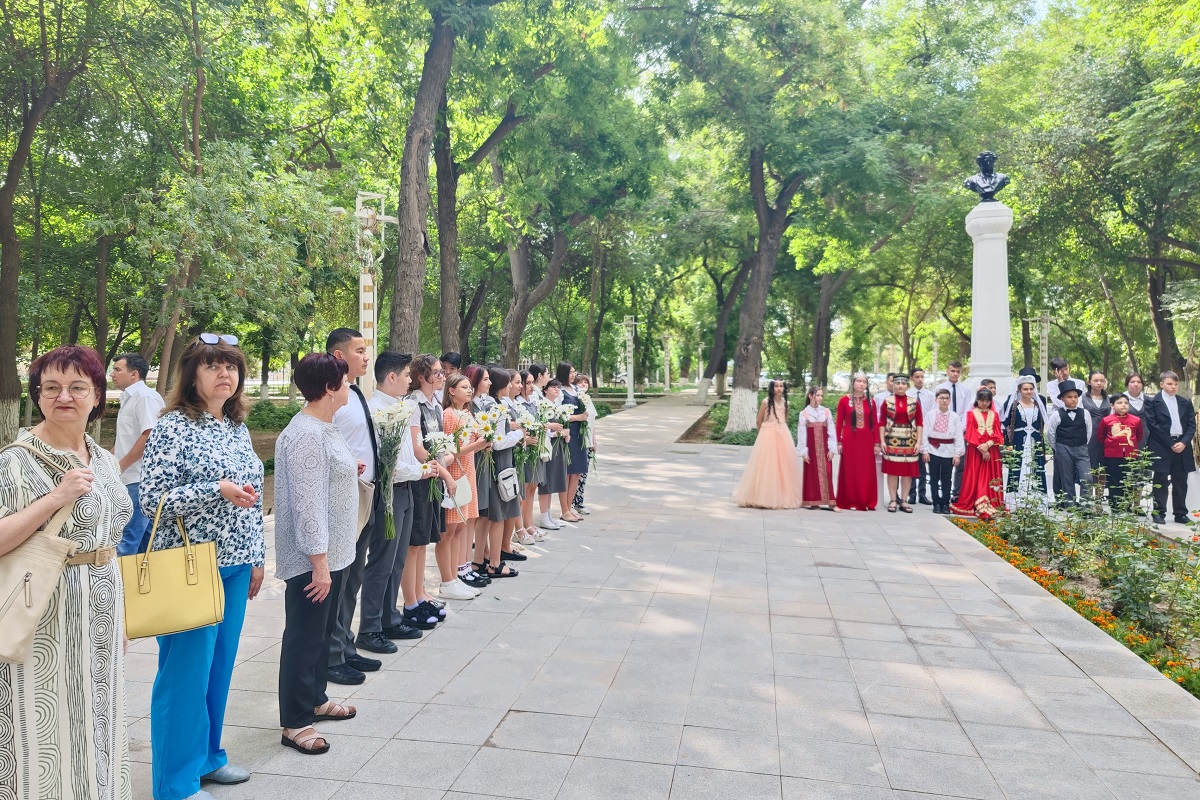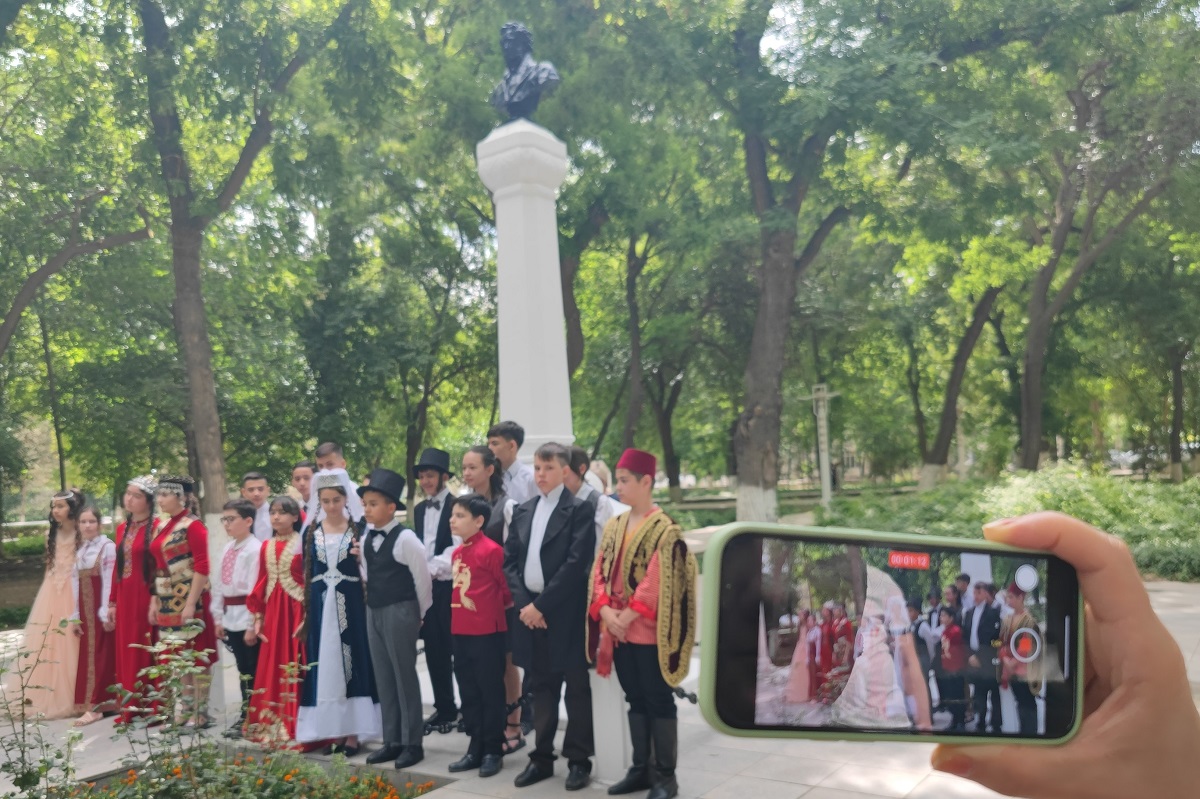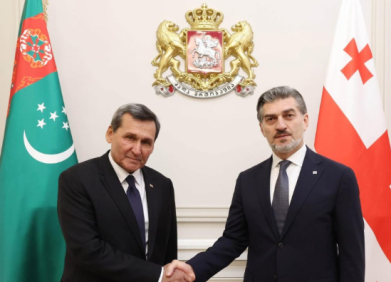Why is Pushkin our everything? Three main arguments
06.06.2023 | 18:15 |June 6 is the International Day of the Russian Language, celebrated at the world level.
The importance of the Russian language, its richness and exclusivity is evidenced even by the fact that the holiday was established first by the United Nations in 2010, and only then – in Russia in 2011.
Without exaggeration, it is celebrated in many countries, including Turkmenistan. So, on the eve of the celebrations on this occasion were held in the capital's park.

Moreover, today, on the birthday of Alexander Sergeevich Pushkin, both young and adult Turkmen citizens began to flock to the monument of the great poet to lay flowers. The event was held with the participation of representatives of the Russian diplomatic mission in Turkmenistan.

... The coincidence of Pushkin's date of birth with the International Day of the Russian Language is natural. However, how did it happen that Alexander Sergeevich was able to "bind" the attention of everyone who somehow encounters the Russian language?

From school we know that Pushkin is our everything, sometimes without going into the real prerequisites of such a statement. Some will answer – he created many works, and especially "savvy" will remember that he is the creator of the Russian literary language. Of course, both assumptions will be correct.
On the other hand, maybe it's all about our mothers and teachers telling us the tales of an inspired poet and telling us about his dominant role in Russian literature?
Yulia Zaitseva, secretary of the Russian Embassy, also said this at today's ceremony:

"Of course, children absorb everything with their mother's milk, so when we start reading Pushkin's fairy tales to our kids, singing lullabies, we form the concepts of "native language", "native speech" and all this mentality that our ancestors accumulated for thousands of years."
Then, after a short pause, she added:
"Pushkin is loved by everyone, because it was his genius that shaped the literary language that we have been speaking for many centuries. Before that, the Old Slavic vocabulary was used and the Russian language was quite complex. It cannot be said that it is light now, given the large number of rules, but the sonority and singability characteristic of poetic language appeared thanks to Pushkin," Zaitseva summed up.

...This very "sonority" and "melodiousness" are known in comparison: the famous lines from the deeply lyrical poem "I loved you..." read near the bust of the classic in Turkmen, French, Armenian, Azerbaijani, Tatar, Turkish and other languages were heard at the event.
This bust is the oldest monument of the city of Ashgabat. It was opened back in 1901, having witnessed three states. This year the monument celebrated its 122nd anniversary.

Russian Russian literature in this article, dedicated to the great and mighty, we will try to figure out why Pushkin not only leads the avant-garde of the creators of the Russian land, but is the founder of the modern Russian literary language.
Let us recall that the literary language is a form of the national language, understood by all members of this language collective as an exemplary one. Let's try to understand how the poet was able to do what he is being exalted for.
First: Pushkin is the founder of the Russian literary language!
This is the answer to the question why Pushkin is the greatest, you will hear from any teacher at a university or a teacher at school. Let's try to make it more clear. For example, a literary language is the norm, or in another way, a reference language in which everyone should speak and write. It acts as a kind of universal language that everyone should understand.
And how did Pushkin create it?
He was not a linguist and did not indicate how to write correctly. He did not formulate a single law of grammar or vocabulary. However, linguists do not write language laws, they simply describe real phenomena in the language. And Pushkin's works became a kind of material for further research.
It's very simple: in Russia at that time there were two camps – archaists and innovators. The former advocated the preservation of Church Slavonic vocabulary in the Russian language, arguing that it is the value of the distant past of Russia. Their main "enemy" at the same time were borrowings of foreign words, which at that time massively penetrated into the Russian speech. The innovators, on the contrary, advocated the removal of Old Slavonic words from the language, calling them rude and useless.
No one has won in this struggle: the process of borrowing foreign words has not stopped, and Old Slavonisms have remained safely. From here we learn one of the sources of the richness of the Russian language: the adaptation of words from the languages of peoples living at the junction of Europe and Asia. On the basis of this, the national identity of the Russian people was formed in the future. And in the conditions of irreconcilable disputes, the literary language of relatively new European Russia could not be lined up in any way.
It was only in Pushkin's prose that a historical consensus was reached: in his works he was able to find an application for both Old Slavonisms and a place for borrowings denoting new concepts.
The language of Pushkin's prose and poetry made a great impression on contemporaries, because it was possible to speak and write freely in it. In the future, Mikhail Lermontov managed to make this literary language popular, thanks to the "Hero of Our Time", and Nikolai Gogol – to enrich the Pushkin language with vernacular and dialect words that we still use.

Russian Russian literary language, however, only the descendants understood the colossal personality of Pushkin, tracing the chronology of where the modern Russian literary language, understandable to everyone, arose from, because all roads led precisely to the devoted poet of the Russian word.
Second: Pushkin is the founder of Russian realism!
In total, Pushkin wrote over 800 works, including one novel in verse ("Eugene Onegin"), 12 poems, 7 fairy tales, 15 prose and 8 dramatic compositions, as well as 783 poems.
Nevertheless, the next laurels of the great poet were due to the fact that he founded a new direction for Russian literature of that era – realism.
Since that time, the so-called literature of flagellation of lies and the intrinsic value of truth, its display without embarrassment and embellishment, smoothing corners and silencing, originates.
Third: Pushkin is the founder of Sovremennik!
Pushkin combined his creative activity with the post of editor–in-chief of the socio–political magazine Sovremennik created by him. But not everyone knows that his brainchild became the most popular and effective literary tribune of that time.
Some researchers believe that the emergence of the magazine largely determined the development of Russian publishing, as well as the creative path of many poets and prose writers.
N.Gogol, A.Turgenev, N.Nekrasov, V.Zhukovsky, E.Baratynsky, F.Tyutchev and many others gained popularity immediately after their debut publications in this magazine. The lines of well-known Russian works were first published on the pages of this publication.
Thus, Pushkin left behind a self-nascent "organism" that reproduces and opens the way for new talents.
Pushkin in Turkmenistan
Traces of the great classic can be traced in Turkmenistan: starting from the presence of connoisseurs of his works, ending with historical monuments of that era.
Russian Russian Secondary school and the State Russian Drama Theater in Ashgabat bear the name of the great Russian poet in our time.
The literary heritage of Alexander Sergeevich has always been carefully treated in Turkmenistan. And it seems that this will always be the case, as well as his immortal lines.

In addition, here, to the monument of Pushkin, as the poet prophesied, the folk path will never "overgrow.

Arslan MAMEDOV











